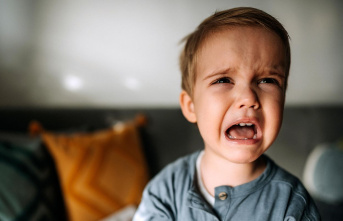At least 14 states have filed lawsuits against school masks. Sometimes, state leaders are fighting school administrators who normally enforce rules.
Experts say that although state laws are more important than local control, the legal arguments of mask supporters have a high chance of winning. But amid protests and even violence over masks around the United States, the court battle is just beginning.
Public schools have different mask rules. They are required in some states, while others prohibit them. Many others leave it up for individual districts.
The big school districts in Florida, Texas, and Arizona are suing governors to force them to use masks. Parents are worried about similar legislative bans in Utah, Iowa, and South Carolina.
In Missouri, Illinois and Michigan, there have been a slew of suits that can be worn under masks.
Parents, who are often frustrated or scared for their children during this unprecedented time, are at the heart of these debates. There were wins for mask advocates in Arizona and Arkansas, followed by back-toback rulings in two large states that went in opposite directions. A Texas Supreme Court made a block on Thursday against another school mask mandate, while a Florida judge allowed rules to proceed Friday.
The federal Centers for Disease Control and Prevention recommend universal mask wearing in schools. COVID-19 vaccines are not available to students 12 years old and under.
Republican officials opposing mask mandates say there are negatives to children being masked for long periods of time and that parents need to decide whether to use them on their children. Children are less susceptible to the virus than older adults.
But public health experts say masks are a key coronavirus-prevention tool that does not pose health risks for children older than toddler age, and truly effective when worn by a large number of people.
"The idea of parental autonomy to choose what is best for their child's needs is not unlimited. It has never been unlimited within our system," Ellen Clayton, a Vanderbilt Law School professor in Nashville, Tennessee, said.
Nationally, COVID-19 deaths have reached more than 1,200 per day. This is the highest rate since mid-March. The average number of cases per day is over 156,000, bringing the total back to January.
This is due to the highly contagious delta variant, which is spread among unvaccinated people. Doctors have appealed to their patients to inoculate themselves in areas with low vaccination rates to save hospitals.
They also raised alarm about the increasing impact of the variant on young people and children.
Tennessee's COVID-19 reports show that children account for 36% of all cases. Governor. Bill Lee has not prohibited schools from using masks, but has stated that parents can opt out. Remote education options are limited in this year's state. Only a few schools have adopted mandates for masks in the state.
South Carolina passed anti-mask regulations and is now facing a federal lawsuit from the American Civil Liberties Union. In light of rising infections, especially among children younger than 10, the ACLU claims that South Carolina is placing students with disabilities at higher risk.
Susan Mizner is the director of ACLU's Disability Rights Project. She said that offering students with disabilities and medical conditions remote education options is not an option. She said that limiting students with disabilities and students who are medically fragile to remote education is denying them equal opportunities.
Public schools are not allowed to exclude students with disabilities from school or separate them from their peers under the Rehabilitation Act and the Americans with Disabilities Act. Schools must also make reasonable modifications to enable students with disabilities to fully participate in school. As the court case continues, lawyers have requested a temporary injunction that requires masks to be worn by schools.
Mizner stated that "we understand people are tired." We understand that people are frustrated by the pandemic. However, we also understand that there is much more to this situation. We want them to use their best selves to help the children in their communities most at risk.
Schools already have many restrictions that protect children's health. Ruth Colker, an Ohio State University law professor and disability-law expert, stated that peanut laws are a good example.
These rules are designed to protect children with peanut allergies, which can be fatal. The argument is that children most at risk for COVID-19 should all wear masks to prevent them from getting sick.
Colker stated that "they need the people around them to not spread the particles of peanuts." COVID is similar to peanuts. Actually, COVID is even more contagious.
She believes that schools that accept federal funds are subject to federal disability laws. Many court decisions only apply to one school or one state. However, this could change if federal officials enter the legal arena. President Joe Biden has ordered his education secretary to explore possible legal action against several states that have blocked school mask mandates and other educational public health measures.
However, whatever happens in court is unlikely to bring about a resolving of the political divides that surround masks. A recent poll from The Associated Press and NORC Center for Public Affairs Research found about 6 in 10 Americans wanted students and teachers to be required to wear face masks while in school.
However, only 3 out of 10 Republicans favored mask requirements in the poll, compared to 8 in 10 Democrats.
This divide is being played out in Florida, Texas, where many big school districts are resisting governors' executive orders against school-mask mandates.
Texas has many school districts that have defied the governor. Greg Abbott's mask mandate ban. But the state's highest court sided with the governor this past week as the Republican judges found the "status quo" of authority on masks should rest with him while the case plays out.
"The decision to enforce mask mandates lies with the governor's legislatively-granted authority," Attorney General Ken Paxton said Thursday. "Mask mandates in our state are illegal."
Florida's public schools now have more than half their students in districts that require masks, despite an executive order by the Republican Governor. Ron DeSantis. Although he wants to leave these decisions to parents, a judge ruled that schools should be allowed to use masks to protect public safety.
Utah and Iowa have laws that restrict or ban mask mandates. The state may have the legal advantage in these cases, as state laws tend to prevail over local control. Lawrence Gostin is a Georgetown professor of global law and the director of the World Health Organization Center on Global Health Law. He said that while he believes restrictions on mask mandates are "utterly irresponsible and a breach of trust", he sees the legal landscape as unclear at best.
He said, "There are going to be really intense battles in American courtrooms."











